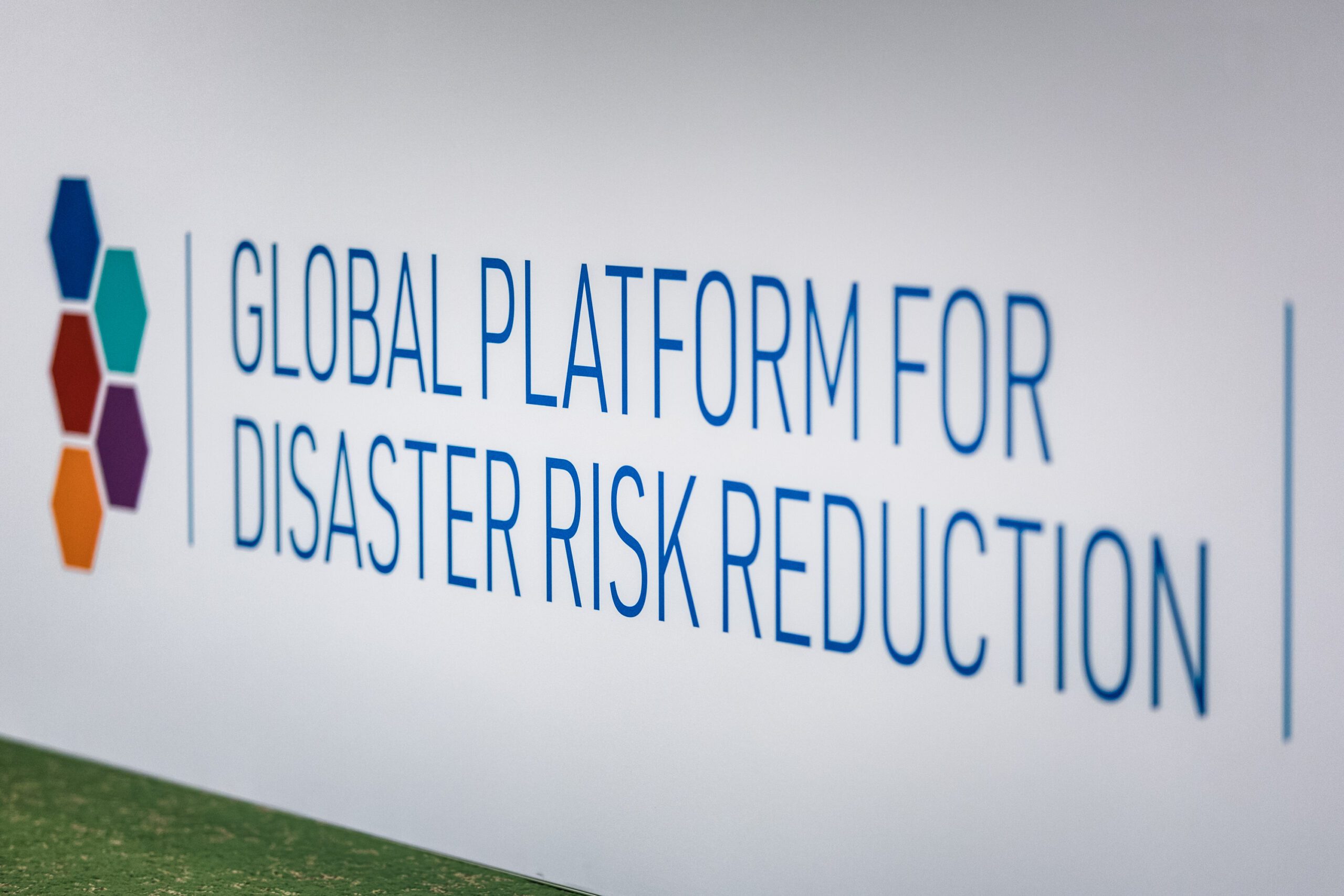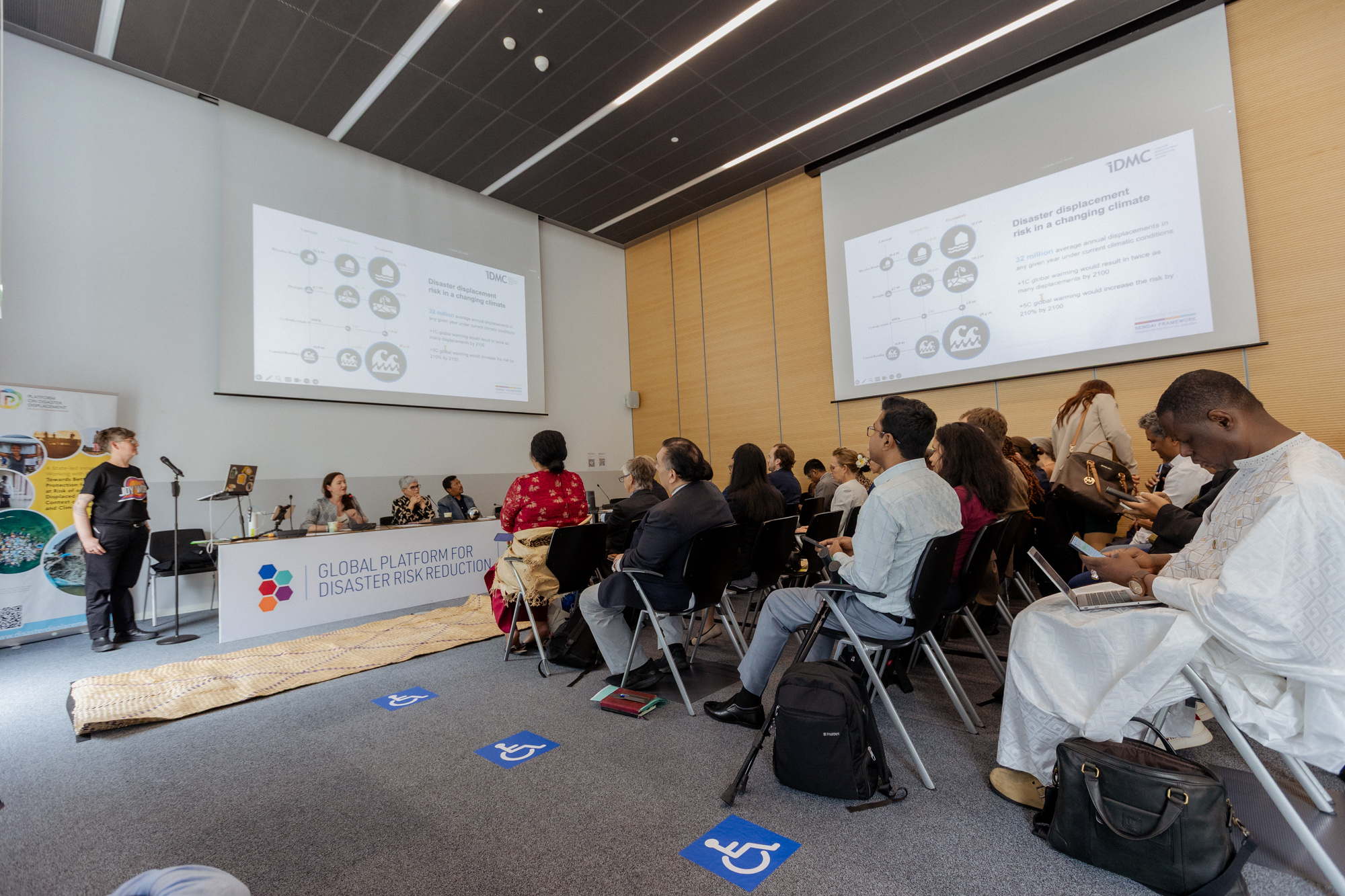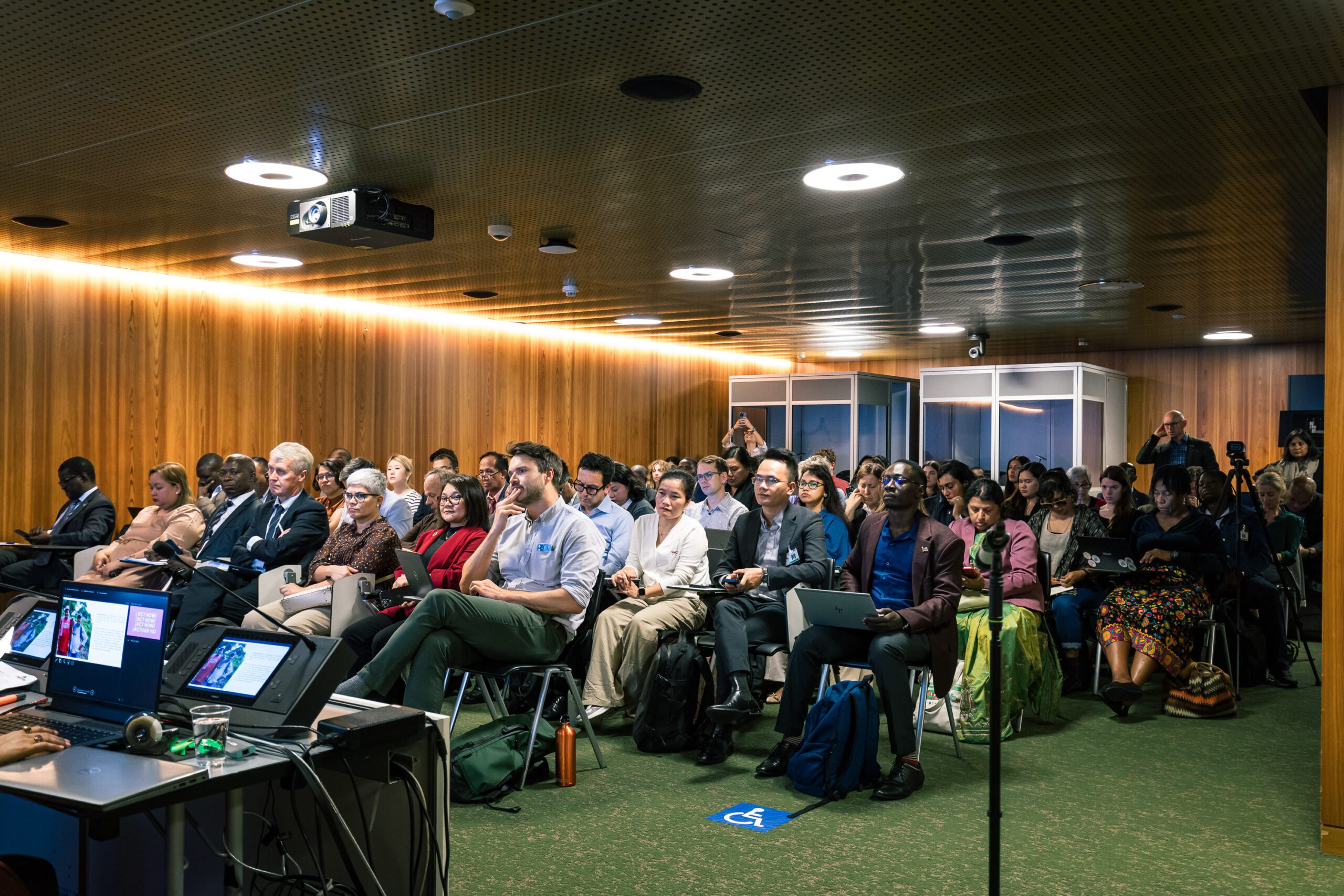Harnessing Data, Science, and Local Knowledge: Key Discussions from the GFMD Thematic Workshop on Climate Change and Human Mobility in Paris
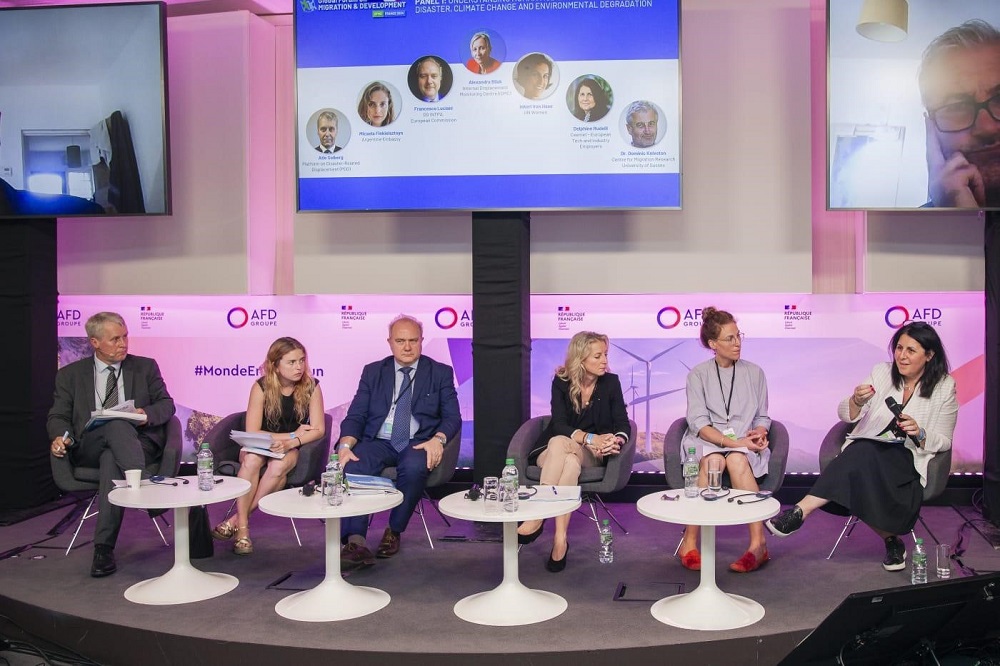
Paris, France, 28 June 2023 – The Global Forum on Migration and Development (GFMD) hosted a panel discussion on how data, science and local knowledge can effectively help adopt and implement policies in the area of human mobility, disasters, climate change and environmental degradation. The panel discussion was part of a larger two-day GFMD Thematic Workshop in Paris, focusing on “Climate and Human Mobility” on 28 June. 27 June was dedicated to a workshop on “Culture, Narratives and Human Mobility”.
Setting the scene of the Thematic Workshop, Mr. Robert Piper, the Special Adviser on Solutions to Internal Displacement, emphasized in his opening remarks that internal displacement was rapidly increasing and highlighted the potential displacement of 216 million people by 2050 in the context of climate change, a scenario outlined in the World Bank’s Groundswell report.
On the same day, Mr. Atle Solberg, Head of the Secretariat of the Platform on Disaster Displacement (PDD) moderated a Thematic Workshop panel discussion on “Understanding human mobility in the context of disasters, climate change and environmental degradation: How can data, science, and local knowledge help to adopt and implement comprehensive policies in an effective way?”. The European Union, Chair of the PDD, and Argentina, a PDD Steering Group member, joined as panelists.
Mr. Solberg started the panel discussion by raising the question of how useful data, and in particular big numbers and big trends, are in developing public policies. In this context, a diverse group of panelists including representatives from governments, the UN, academia, civil society, and the private sector, critically assessed opportunities and challenges in harmonizing data, science, and policy on human mobility and climate change.
Ms. Alexandra Bilak, Director of the Internal Displacement Monitoring Centre (IDMC) provided a comprehensive review of existing data on internal displacement in disaster contexts, stressing the importance of updated, accurate and harmonized information – a challenge considering the need to triangulate data from a diverse range of sources including government, UN agencies and civil society.
Mr. Francesco Luciani, Head of Unit Migration and Forced Displacement, DG INTPA, European Commission, underscored the EU’s commitment to assist partners in vulnerable countries to build resilience. He stressed the need to understand and appropriately respond to the challenges on the ground and work towards effective local level initiatives.
“We need to help our partners understand what’s happening in their territory, identify the right measures to be taken for investments, loss and damages, protection measures. (…) We are promoting studies and research to help calibrate our choices and our assistance based on a bottom-up approach, building capacities at a local level and creating a network of knowledge.”
Mr. Luciani concluded his remarks underlining the role of the PDD: “We are honored to chair the Platform on Disaster Displacement, and consider this a public good that can deliver assistance, knowledge, and information on best practices to all those in need of solutions.”
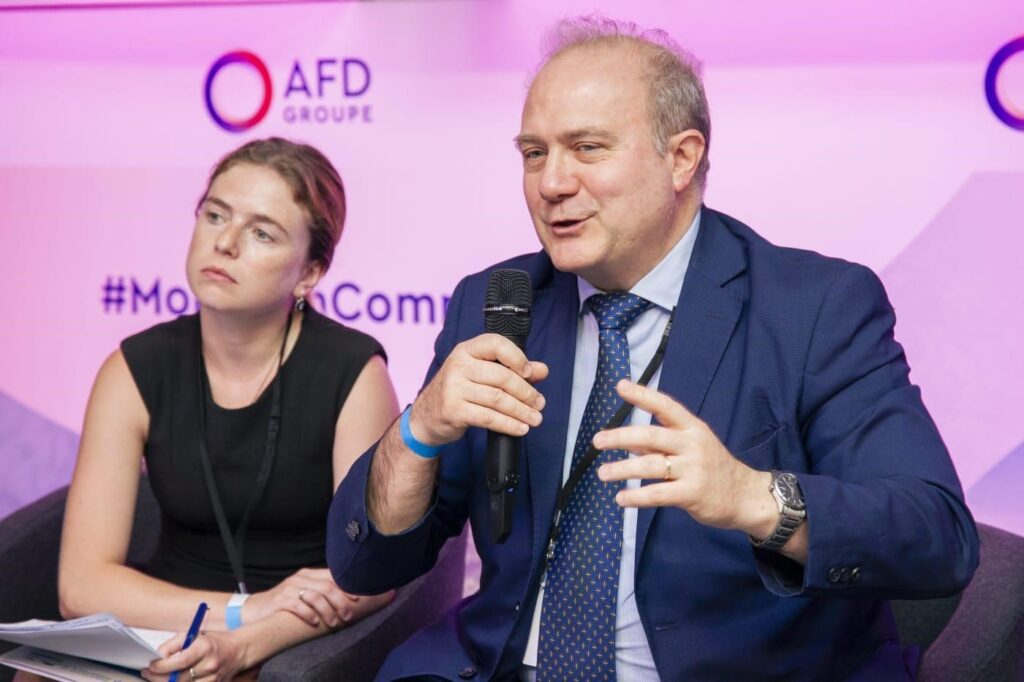
Throughout the GFMD panel discussion, underscored that understanding the full complexity of disaster displacement requires more comprehensive data and consideration of intersecting factors such as social, political, and environmental issues.
Ms. Micaela Finkielsztoyn, Second Secretary at the Argentine Embassy in France detailed recent policy developments at national level, including the introduction of a Special Humanitarian Visa Program for nationals and residents in neighbouring countries displaced in disaster contexts. Representing the private sector, Ms. Delphine Rudelli, Director General of Ceemet, underlined the importance of implementing policies that ensure the labour market integration and well-being of migrants moving in a changing climate, emphasizing that data collection should not be an end in itself but rather inform policy and action.
In concluding the panel discussion, Mr. Atle Solberg emphasized the need expressed by panelists to invest more in data, evidence, and knowledge, and to make this information more granular, disaggregated, and localized. Further, he reiterated that such data is only useful if it is accessible to a wide range of stakeholders and fits into both programmatic responses and public policies.
Cover photo: Panel from left to right: Mr. Atle Solberg (PDD), Ms. Micaela Finkielsztoyn (Argentina), Mr. Francesco Luciani (European Unoin), Ms. Alexandra Bilak (IDMC), Ms. Inkeri von Hase (UN Women), Ms. Delphine Rudelli (Ceemet), with online participation by Professor Mr. Dominic Kniveton (University of Sussex)
Photo 2: Mr. Francesco Luciani (right), representing the European Union, Chair of the PDD, together with Ms. Micaela Finkielsztoyn (left), representing Argentina.

